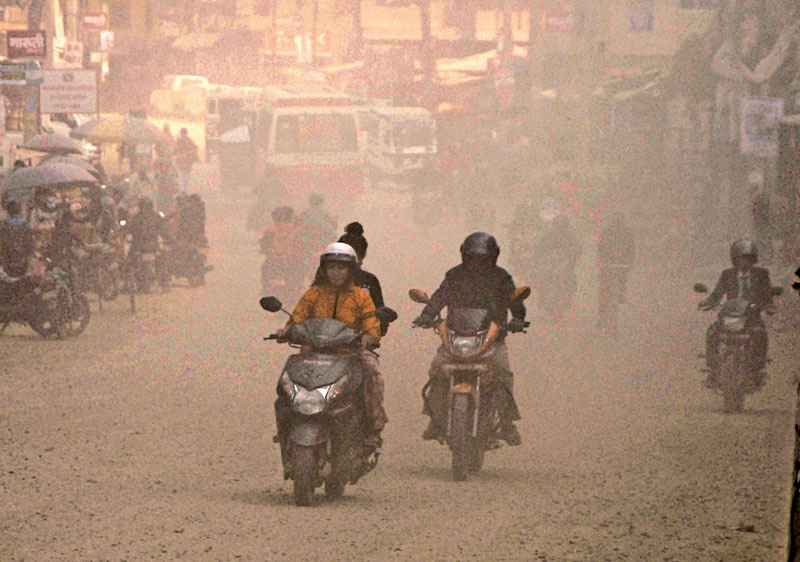Pollution control not getting government’s due priority
Kathmandu, June 5
Although Article 35 of the constitution states that every person shall have the right to live in a clean and healthy environment, Nepali citizens are not even aware of pollution levels in their areas, cities, and the country.
Except for researches conducted by INGOs occasionally, there are no concrete reports developed or monitoring done of air, noise, and water pollution levels by the Nepali government.
While the government should have taken some measures to control and monitor pollution in the country, it relies on data collected by INGOs or other international communities to date.
Director General at the Department of Environment Ganesh Kumar Shrestha admitted that although they made several attempts to set up air pollution monitoring station in the country, the efforts have been unsuccessful so far.
He blamed the government of not giving the issue a priority.
Shrestha said there are no state-led air and noise pollution control programmes or monitoring of pollution levels throughout the country. He said although the department had initiated a programme to make Nepal free of plastic bags with a budget of Rs 15 million, they only received Rs 2.5 million.
While the issue of air pollution gets more attention and more funding for control, noise and water pollution issues are almost completely neglected in the country.
The Danish government had installed the first of its kind seven air quality stations in the Valley in 2002. Five of these stations were built in Machchegaun, Kirtipur, Patan, Putalisadak, and Bhaktapur each, and two in Thamel.
After the stations were handed over to the Nepali government in 2008, the government transferred the onus to the Environment and Public Health Organisation.
However, a misunderstanding between the government and ENPHO led the stations to be closed since 2009. Environment expert Bhusan Tuladhar blamed the government’s negligence for this.
According to the Environment Performance Index 2016 that quantifies the environmental performance of state’s policies, Nepal ranks 149 among 180 countries, and 177 in air quality.
While cities around the world, including neighboring countries, have taken stringent actions to improve air quality, Nepal has yet to do so.
Numbeo, a crowd-sourced global database, ranked Kathmandu as the third most polluted city in the world with a score of 96.66 out of 100, after Tetovo, Macedonia, and Cairo, Egypt in its Pollution Index 2016.
While Nepal’s national air pollution standard is 40 microgram per cubic meter, existing data show that the pollution levels in the Valley remains above 200 microgram per cubic meter.





